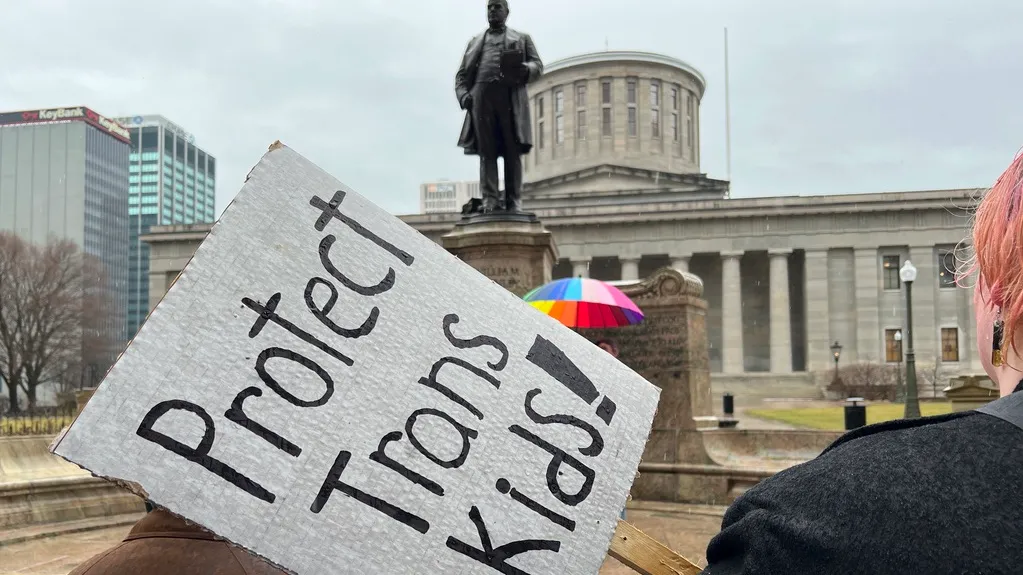August 16, 2013
Corporate Sponsors Against Sochi Games Boycott
Jason St. Amand READ TIME: 4 MIN.
In the wake of the worldwide controversy surrounding Russia's "homosexual propaganda" law, Coca-Cola and McDonald's, two huge sponsors for the 2014 Winter Olympics, released statements condemning the measure, but say the Games should still be held in Sochi, Russia.
According to Pink News, both companies are against the anti-gay measure and say that it goes against what the spirit of the Olympics, sharing similar sentiments made by the International Olympic Committee. Nevertheless, just like the IOC, officials from Coca-Cola and McDonald's say the sporting event should stay in Sochi.
"There's no room for discrimination under the Golden Arches. McDonald's welcomes 69 million customers around the world every day representing different races, nationalities, religions, genders, ages and sexual orientations," a McDonald's spokesperson said in an email to Pink News. "McDonald's supports the spirit of the Olympic Games and its ability to unite the world in a positive and inspirational way. We've been a proud sponsor of the Games for 37 years.
"Regarding the recent Russian legislation, we support the International Olympic Committee's belief that sport is a human right and the Olympic Games should be open to all, free of discrimination, and that applies to spectators, officials, media and athletes," the statement concludes.
Coca-Cola spokeswoman, Kate Harman, echoed McDonald's statements in an email to BuzzFeed.
"We have long been a strong supporter of the LGBT community and have advocated for inclusion and diversity through both our policies and practices... We do not condone human rights abuses, intolerance, or discrimination of any kind anywhere in the world," she said. "As a sponsor since 1928, we believe the Olympic Games are a force for good that unite people through a common interest in sports, and we have seen firsthand the positive impact and long-lasting legacy they leave on every community that has been a host," she continued."
When asked about the risks Coca-Cola employees face when traveling to Russia for the Olympics, Hartman said, "the IOC has received assurances from the highest level of government in Russia that the legislation will not affect those attending or taking part in the games."
BuzzFeed reports both companies are rapidly expanding their business in Russia. Coca-Cola is two years into doubling its investments in the country, through a five-year $3 billion plan. Starting in February, McDonald's plans to add 150 more restaurants across Russia over the next three years, increasing their market by 50 percent.
Kenneth Roth, president of Human Rights Watch, told BuzzFeed that he urges the Olympic sponsors to pressure the Russian government to repeal the anti-gay law.
"Companies that are concerned about their image with consumers are not going to want to be associated with a gay-bashing exercise - the commercial advantages are going to be completely undone," Roth said. "Olympic sponsors make enormous investments by being associated with the Sochi Olympics. They don't want to be part of a debacle."
He added that it is "easy to imagine a confrontation taking place on global television," if things are not resolved. Roth continued, "It's almost certain that athletes will flaunt their homosexuality or support for gay rights. That'll create a potential conflict with Russian authorities. There's the fear of this all going horribly wrong. The Kremlin cares about its reputation and the Olympics going off smoothly - they don't want this to be a new embarrassment."
Despite outrage from athletes and people around the world, Russian officials say the anti-gay law will be enforced during the Games. Those who violate the law face substantial fines and jail time. The measure also impacts tourists who will also be slammed with fines, detainment and can even be banned from the country.
The law prohibits "homosexual propaganda" from being spread among Russian minors, but since the measure is vaguely worded it is hard to identify what "homosexual propaganda" exactly is. Experts say anything from holding hands, waving a rainbow flag to wearing a LGBT rights pin could be "homosexual propaganda."
Russian President Vladimir Putin signed the law in June, which also bans the promotion of "non-traditional relationships" from minors. In addition, Putin approved a measure that bans the adoption of Russian children by foreign same-sex couples.


